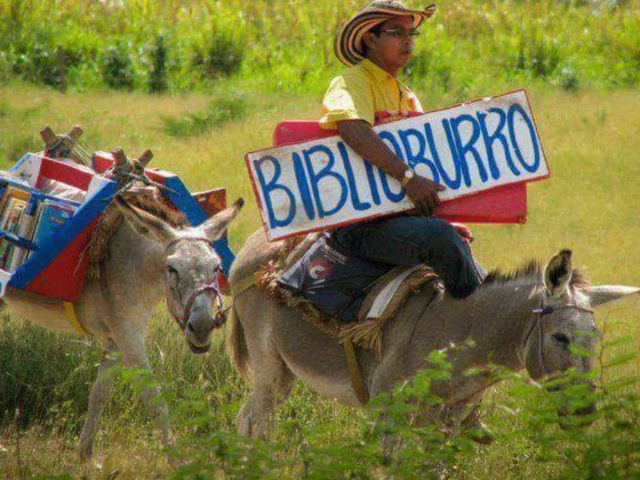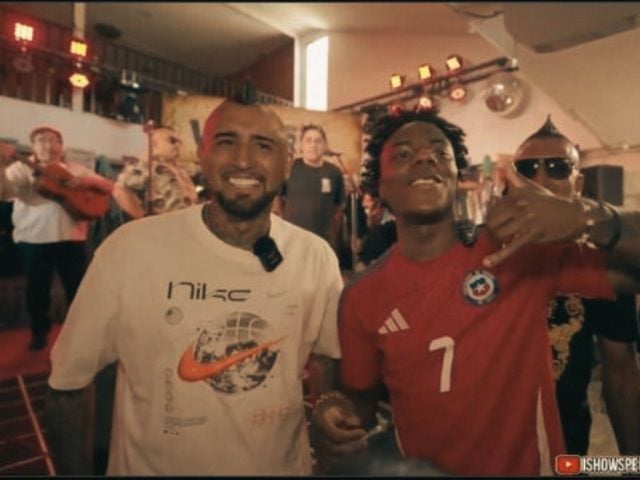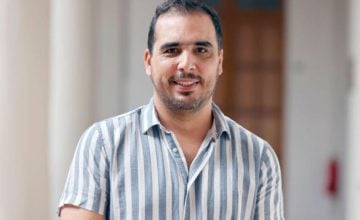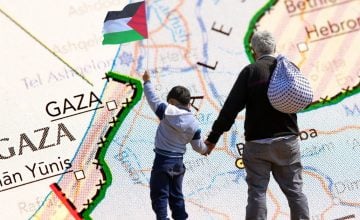The significance of this story stems from its simplicity. Luis Soriano, a rural teacher in Colombia, had books to share and when he thought about how to do it, he brought together two seemingly adverse elements: books and donkeys.
‘El Quijote Colombiano’ (the Colombian Don Quixote), as he has been called, travels the intricate paths of his native La Gloria, in the department of Magdalena, in the Colombian Caribbean region, on the back of his donkeys, Alfa and Beto, which carry a load of ‘pages and ink’.
Soriano, who studied Spanish and Literature at the Universidad del Magdalena, in Santa Marta, had 70 books that he wanted to share with people from nearby villages, but how would he do it?
He thought it would be easier to mobilize them with the help of animals traditionally used to carry packages across long roads in peasant areas. «Without wanting to, but at the same wanting to do it, I rode a donkey and went with the books to neighboring houses», he said in an interview for RT.
Alpha, Beto and me
The Biblioburro, as the union of two traditionally opposed elements in the form of an unconventional library was called, was born in 1997, by Soriano.
The creator of the idea explains that initially he did not receive financial support, but is currently supported by the Magdalena Family Compensation Fund (Cajamag), which has financed the promotion and animation of reading with a network of «biblioburristas» in territories difficult to access in the Serranía de Santa Marta, where there are indigenous communities such as the Arhuacos, the Kogis, the Wiwas, among others.
The first Alpha and Beto died and other younger animals now fulfill their task and bear the same name as a tribute to them. Beto was attacked by a snake and Alfa, who spent thirty years with Soriano, died at an advanced age.
In Colombia they give smiles as payment
This teacher, with more than 25 years of experience in the educational field, remembers that on some occasions he was questioned by his family and his acquaintances for dedicating himself to a job that did not pay dividends. Currently, with the financing he receives, a network of between six and eight people has been formed, who are also part of the public library system.
When asked about his reason for taking long trips, up to several hours on the quadrupeds, he speaks of the joy of children when the donkeys loom over the secluded places of Magdalena, one of the five poorest departments in the South American country.
«There are very intelligent little ones who contribute to the Biblioburro, who are leaders in their community, who are in charge of organizing others», he adds.
Henry Candanoza, who since 2010 forms the Biblioburro Foundation together with Soriano, refers that the little ones in the communities «bare their hearts by having a book in their hands», despite their own limitations. «They hardly have anything to eat but when we arrive they smile from ear to ear».
«Do not abandon us»
The Biblioburro makes visits two to three times a week to different towns. Some 340 children participate in the program along with others who, although they are not registered, enjoy the activities.
«We offer children tools to transform their way of thinking, to stimulate their imagination, so that they know that they have rights and duties», says Candanoza.
The constancy of these 21 years of learning through the Biblioburro is reaffirmed each day that ends when the little ones say: ‘Do not stop visiting us, do not abandon us‘ ”, recalls Candanoza.
Why a donkey?
The Colombian intellectual Alfredo Molano, speaking of his book ‘A lomo de mula’ (On the back of a donkey), says in an interview that it is easier to get to know Colombia riding a donkey than in a helicopter. This seems to be the spirit of Soriano.
He remembers the mockery and the skepticism of some acquaintances when they learned that he would ride a donkey precisely to promote reading. «They saw it with a ridiculous connotation» in those early years.
In his donkey ‘travels’ he has had some roads that have been more difficult than others, and complex moments where his own life has been in danger. In the 1990s, he was detained on one occasion by a group of paramilitaries, who, after they retained him for a few hours, let him go. At other times, they just questioned him about what he was doing.
In 2009, while fulfilling his task, he fell from Alpha. After three years of intense pain, one of his legs had to be amputated. However, this accident and the experiences arising from the conflict in the South American country did not affect the continuation of the project.
Read for the peace of Colombia
The town of La Gloria, which has not escaped the violence in Colombia, is made up mostly of displaced people from the armed conflict. Until the first decade of 2000, journalists could not visit Soriano, so as to interview him, out of fear.
The educator considers that, although his country has been stigmatized by the issues of violence and drugs, the educational and cultural work of promoting reading “has transformed minds, communities, schools, teachers. It is something that cannot be hidden».
In his view, his community has changed. «It is a population that has woken up, that makes its demands, and it does it through the corresponding channels».
Soriano talks about the promotion of peace that social leaders like him should do, and Candanoza explains that some Biblioburro participants, who are now adults, «were going to go to war and they didn’t».
«When you see that children choose books instead of weapons, or sitting in a corner watching who they can steal, we see and feel satisfaction», he says excitedly on the other end of the Candanoza phone.
Digital Biblioburro
Knowledge not only travels on the back of Alfa and Beto, it also travels through technological tools and the Internet «to strengthen learning», through the Biblioburro Digital program, explains Candanoza.
The work of this young man, who is the foundation’s communications director, has focused on the adaptation of educational content for a web page still under construction. For now, the stories and images of this work can be found on social networks such as Facebook, Instagram and Twitter.
Another of the programs they offer is a volunteer program called «Biblioburro very well» aimed at foreigners who wish to visit the foundation and participate in volunteer activities and cultural exchange, at no cost. In this case, the email to obtain information or make donations is [email protected].
Through Biblioburro, three schools, a digital room and a library with more than seven thousand books have been built, which have been donated by people inside and outside of Colombia.
Biblioburro leaves Colombia
The Biblioburro has transcended its own paths and has walked on other territories. In Italy, it has a ‘double’ called Serafino, who, led by Lucía Pignatelli, roams the streets of the province of Milan. She was inspired by Soriano’s initiative.
This itinerant reading room has been recognized both inside and outside of Colombia, «because, although it does not handle large resources, it is a job where two donkeys, who are the most intelligent, offer education and transform lives», says Candanoza.
Both in Chile and Bolivia, the gray fur of the donkeys has been changed by the woolly fur of the Bibliollamas, which are handled with more skill in the steep Andean reliefs. In the US, it is not an animal but a bus that has been adapted to operate as a library, he says.
Among the recognitions that this initiative has received from the same department that saw the birth of the Colombian nobel Gabriel García Márquez, is that of the former president of East Timor, José Ramos-Horta, who invited Professor Soriano to stay at the presidential residence and there, they gave him a medal of honor of merit for peace.
Candanoza remembers with laughter that once a Spanish journalist asked the educator directly about the donkeys. In his opinion, they are the most intelligent «because they offer education and transform lives».











